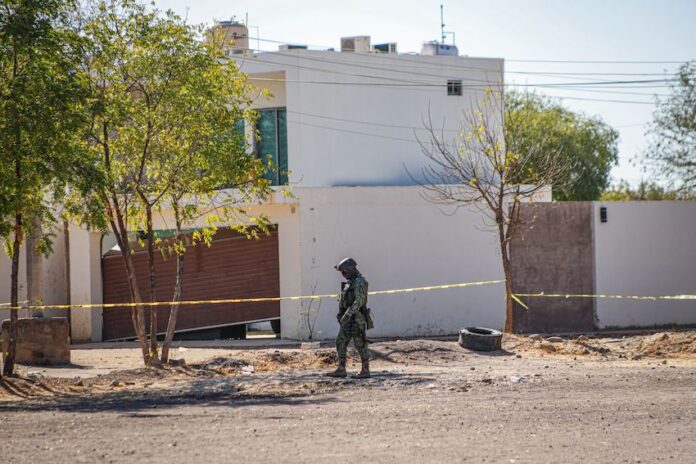Organized crime is hindering economic growth in Mexico, as it is throughout Latin America, confirms a World Bank report published on Monday. With expected economic growth of 2.1% in 2025 and 2.4% in 2026, Latin America’s growth rate is the lowest in the world for any region.
The World Bank report also found that homicide rates in Latin America and the Caribbean “far exceed those observed anywhere else in the world.”

While Latin America’s population represents around 9% of the global total, it accounts for one-third of all homicides, according to the report. The gap widened from a rate of 5.4 times higher than the world average (22 vs. 4.1) in the 2000s to eight times higher (23 vs. 3) in the 2010s.
“Organized crime is one of the region’s most pressing problems and must be at the center of any conversation about development,” the report states.
The report highlights that the global demand for cocaine, illegal gold and migrant trafficking are what led to an increase in organized crime in the past decade. It also cites the reorganization of cartels and other groups due to government repression and the increased availability of weapons.
The World Bank ranks Mexico as having the third-highest “criminality score” in the world, behind Colombia and Myanmar.
In the cases of Mexico and Colombia, the COVID-19 pandemic “allowed criminal groups to gain legitimacy and power in areas where the state was not present, provided opportunities for groups to upgrade their businesses, and facilitated the recruitment of impoverished populations,” the report states.
Short-term stability relies on strengthening the capacity of prisons, police forces and justice systems. At the same time, according to the Bank, nations must work to understand what motivates young people to join organized crime groups.
The report recommends that in the medium to long term, the region should focus on improving education systems and labor markets.
Education and labor market indicators
The report highlights several key business indicators for Latin America and Mexico.
It shows that consumer and business confidence in Mexico remained fairly stable in the pre- and post-pandemic periods, according to an OECD index.
While most countries in Latin America faced setbacks in poverty reduction between 2018 and 2023, in Brazil, Colombia and Mexico, “poverty reduction accelerated, largely as a result of improved labor markets.”
The contribution of household income sources to changes in the poverty rate in Mexico between 2013 and 2018 stood at zero, but during the 2018 to 2023 period, the impact of those same inputs shifted negatively, by up to 7%.
In terms of labor and income trends, “the relative tightness of labor markets after the pandemic has accelerated the pace of real wage growth for most countries, most notably in Mexico, Colombia and Brazil.”
Mexico’s annualized real wage growth between 2021 and 2023 was 6%, according to the report.
The report also assesses educational attainment across different segments of society. In Mexico, there was an increase in intermediate and advanced education attainment in the informal labor workforce from Q2 of 2018 to Q2 of 2024.
Another economic indicator that has shifted significantly over the last two decades is trade policy uncertainty (TPU).
TPU remained stable from 2012 to 2015, with fewer than 1% of news articles mentioning TPU. But it spiked as certain tariffs were introduced between 2017 and 2019 to a high of just over 2% of articles, before stabilizing again.
Following the 2024 U.S. presidential election, TPU shot up to almost 4% and then increased even more dramatically to nearly 14% in the early months of 2025.
With reports from El Economista
